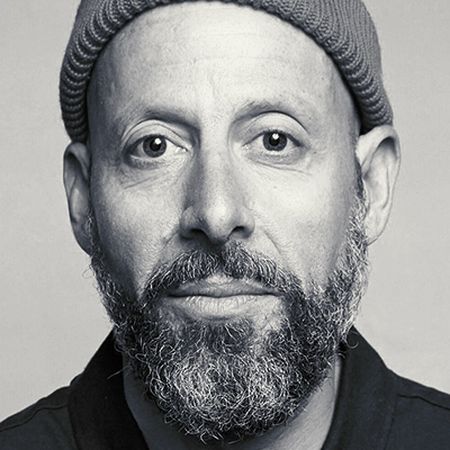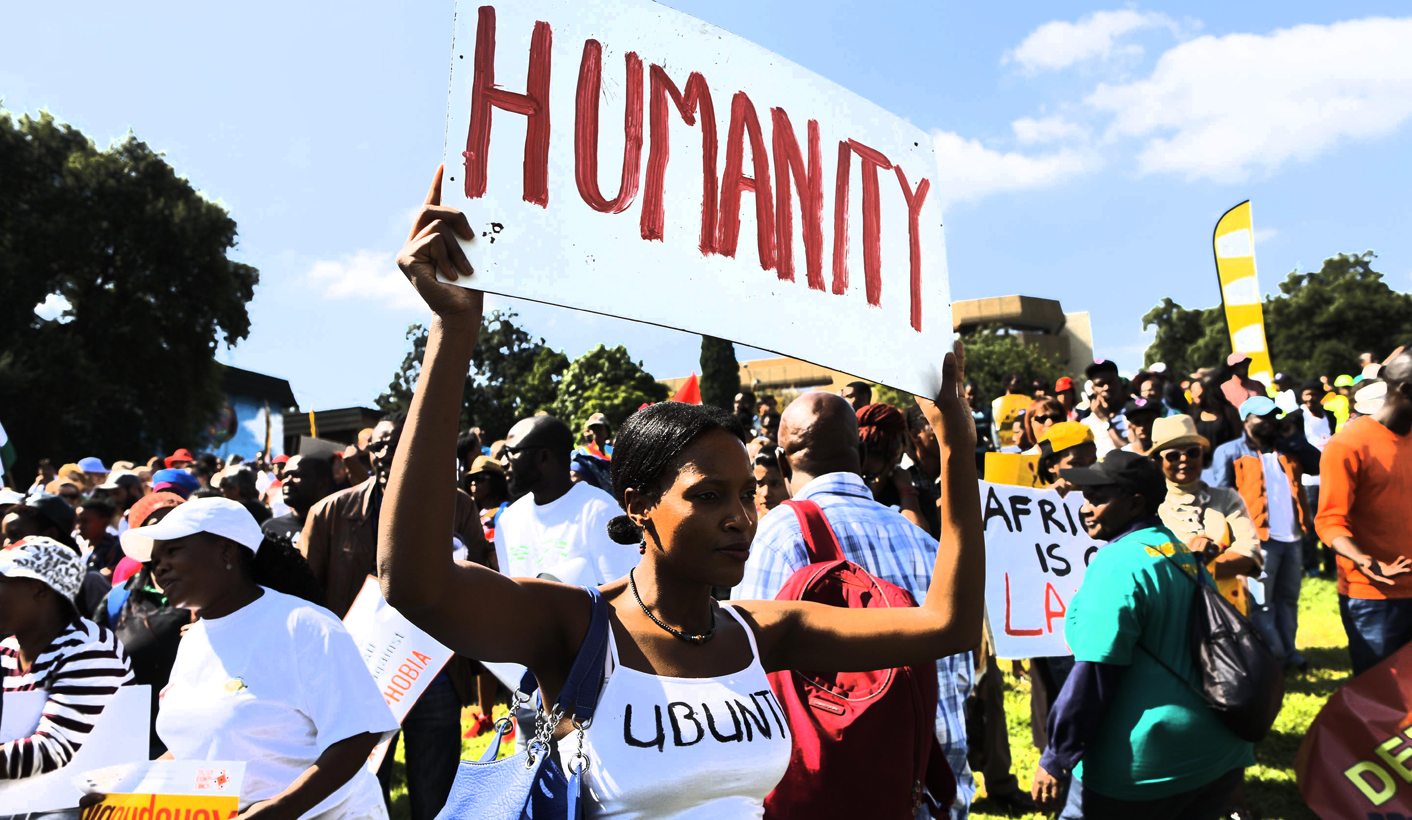mid-14c., of material things, especially dead bodies, also of the soul, morals, etc, from Latin corruptionem (nominative corruptio), noun of action from past participle stem of corrumpere (see corrupt). Of public offices from early 15c.; of language from late 15c.
(Online Etymology Dictionary)
Plumb the etymology of the word “corrupt” and you quickly arrive at its sister — rumpere, “to break”, the past participle stem of which is extant in the late 14th century word “rupture”. We thus learn that “corruption” and “rupture” share a relationship that dates back long before the advent of the postmodern kleptocracy. Humans have, after all, always been experts at rupturing, at destroying.
This little history lesson implies something else: South Africa is not the most corrupt; nor is it even particularly corrupt by historical or international standards. (Turkey’s Nkandla, for instance, has cost that country’s taxpayers well over a quarter of a billion dollars, and has turned a formerly untrammeled conservation area into Mordor.) But the extent of the corruption doesn’t always square with the reaction to it, and South Africans have been reacting badly to the ANC’s version for almost 15 years. The term “service delivery protest” entered the lexicon in 2004, when tyres were set on fire and rocks thrown at cops in a determined revival of apartheid-era protests, a grim spectacle that quickly became a ritual, repeated thousands and thousands of times in hundreds of communities across this blighted land.
About two months ago, a loose coalition of local do-gooders formed Unite Against Corruption (UAC), and they came up with an idea. Or, more accurately, half an idea — a vast march that would include civil society, churches, labour unions, celebrities, book clubs, mini-golf Facebook groups, and regular folks like you and me. UAC would lead this Long Walk to Cleanliness to both the Union Buildings in Pretoria and Parliament in Cape Town. At the head of the procession would be the likes of deposed Congress of South African Trade Unions (Cosatu) secretary-general Zwelinzima Vavi, who would demand an end to the corrupt practices of the ruling African National Congress (ANC), and insist upon the protection and independence of all Chapter 9 institutions.
If you’re anything like me, you were thinking: gimme a break. What was going to happen when 15,000 white people in sensible shoes, two-dozen buses of Numsa delegates, and Zelda la Grange showed up at Parliament to hand out pamphlets to the car guards? The ANC was just going to buckle and allow a Zuma impeachment? Thuli Madonsela would be made president-for-life? Lavender-scented Woolworths body cream for everyone?
Turns out the organisers of the march were similarly nonplussed.
Or, as Mark Heywood, chief of civil society institution Section 27, put it to me over the phone on Tuesday: “It’s not true that we’re not getting the response we would’ve liked. In fact, we’re getting a great response from across the country. We’re getting new invitations of support every day. But one of the questions people ask is: What happens after the march? To be better able to answer that question, we’re taking more time to deepen our understanding of how to make sure our demands after the march get implemented.”
Um, you mean how the End Of Corruption will be implemented?
“Well, we have to distill (our message) into a focused, manageable plan of action,” said Heywood. “Our hope is also that the mere mobilisation of hundreds of thousands of people will increase people’s sense of their own power. So talking to the churches, that’s all part of what we’re trying to do.”
Heywood was on his way to Durban to speak with the secretary-general of the South African Council of Churches, and the way he was pitching it, the end game needed to be less amorphous and the focus had to be on where corruption is most keenly felt — at the municipal level, in the poorest communities. Corruption may outrage the middle and upper classes on moral grounds, but it totally ruins the poor. And the march, according to Heywood, had to follow up on actually addressing those problems without any affiliation to political parties.
But political parties are going to do their best to either latch onto or damn the march, because that’s what political parties do. The Democratic Alliance is going to show up like a nerd at a comic book convention. And because of Vavi and Irvin Jim’s involvement — both of whom have been kicked out of the ANC alliance — the march has been spun by ANC quislings as a factional thing. Cosatu president S’dumo Dlamini, Vavi’s sworn enemy, will do whatever he can to make sure no one currently aligned to the federation goes nears the event. And without broad support from labour, there will be no way for the organisers to draw a historical line between their endeavour and the mass marches of the apartheid era.
“Has there been pushback?” asked Heywood. “Yes. And we expect it to grow. But we are going on September 23, and tens of thousands of people are going to be on the streets. It’s going to be the biggest mobilisation since 1994.”
Maybe. But I couldn’t help noticing that the aforementioned Zelda la Grange had signed up. Nelson Mandela’s former personal assistant, bestselling autobiographer and Twitter doofus was going to contribute how, exactly? Was this going to be a glorified Heritage Day braai thing?
“Well, we do want to tap into the white middle class, but we also want workers to come out and be very dominant on the march,” Heywood told me. “We want to see people from all different walks of life. La Grange gets an echo from a certain community. What we’re saying is that if people are committed to fighting corruption, and if they’re committed to defending and fighting for the Constitution, they should be on this march — regardless that if on another day they differ in ideology, race, class. It may be a naïve view, but its our view, for the good of the country.”
It did sound a little naïve, which by no means made it impossible. With this in mind, I figured I’d call Vavi and see what he had to say about the issue. When I reached him, he seemed less than thrilled to hear from me. “I’m not a spokesperson for this,” he reminded me. “You’ve read the press statement?”
Indeed I had. And as much as I wanted to regurgitate it and get on with the hard work of playing Batman: Arkham Knight under the influence of rusty Scottish water, I nonetheless felt compelled to ask the former Cosatu secretary-general why he thought the march he was staking his career on had been delayed for a month.
“I think it’s for a good reason,” he finally conceded. “I don’t think we’re ready. It won’t make the statement we want to it make. I want to see the plan for 100,000 people, and unless I see that plan, I will support postponement. Currently there is just an overwhelming response, but these people have to be available to get into this bus at that time and be taken to this place.”
Heywood had similarly laid out the logistical headaches. “There is a difference between overwhelming response,” continued Vavi, “and our having a plan to say this bus goes to this workplace, and this is the number of people get into this bus.”
And did he think the march could amount to anything, short of burnishing his brand and those of his comrades? Again, what was the point?
“Exactly!” he sort-of agreed. “One of the things that we have to up our games on is not an event but the beginning of a process to bring power back to our people. There are so many things to pick up from our march. The Office of the Public Protector will be one of the key things to bring up there. The protection of whistleblowers is key for the march. The issue of appointing the next heads of Chapter 9 institutions is key for the march. But then we need to go beyond—to say how we campaign beyond that. There is a looming water crisis in South Africa. Beyond the march we need to see how we take this issue on. Beyond the march we must have a plan to take up those plans at a local government level. So we need to communicate that, and I don’t think we have communicated that very well so far.”
They have not.
“There is lots of work to do,” added Vavi. “Lots of work to do. We want the march to be a political game changer—a march our great-great grandchildren will say, THAT march turned us around back to a constitutional democracy; it moves us away from a slow march to a banana republic; away from a kleptocratic democracy where there is no accountability. So a postponement by four weeks to achieve that moment is something that is good to me.”
Is he thinking this could eventually morph into a political party of its own?
“Why are you asking me about political party?” asked Vavi. “No, we’re not talking about political parties. We're talking about corruption, we’re talking about stealing from the poor and putting it into the pocket of the elite. We think that our communities are paying a heavy price for the rate of corruption in the country.”
So was the idea basically a hyper-connected civil society bloc that could mobilise against a stooge appointment to the public protector’s office, a water crisis in Bekkersdal, a police brutality incident in Bloemfontein’s CBD, and dropping of the hundreds of corruption charges against President Jacob Zuma? A sort of shadow democracy comprised of a coalition of specialised silos that click together like Lego blocks for one coherent purpose — the End of Corruption?
“That’s want we want, chief — accountability!” exclaimed Vavi. “That would make Madiba and Chris Hani smile. What we’re fighting against is political resignation. Fifty percent of people who should be voting no longer have a hope. And that’s extremely dangerous.”
A battle against political ambivalence, then?
“Yes, yes. A march against ourselves. We have to be given that wake-up call. We have to believe in ourselves again. We can’t wait for someone to believe in us.”
No we can’t.
And that is a beautiful thought, marching against oneself. After all, the rupture never heals without attention. Perhaps this is the cure. But Vavi and company will need to propose a way forward for the constitutional democracy they profess to support. It will require a wholesale rebuilding of South Africa’s political institutions. Are they ready for such a battle?
Not quite yet, it seems. The buses still don’t know where they’re going, and nor do they know where to go when it’s done. Only time will tell if they find their way. DM
Photo: Some of the thousands of people are seen carrying anti xenophobia posters during a mass march calling for an end to attacks against foreign nationals, in Johannesburg, South Africa, 23 April 2015. EPA/KIM LUDBROOK





